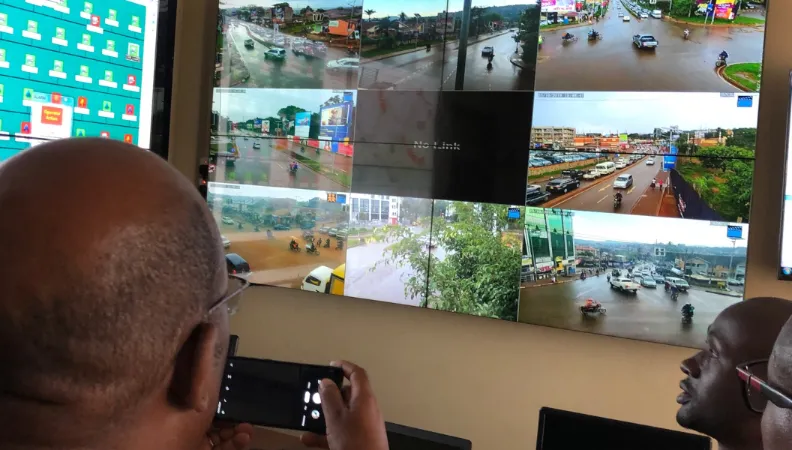Share the page
12 African Cities making the Digital Transition
Published on

Agence Française de Développement (AFD) is supporting 12 African cities in their effort to make the transition to digital platforms. The municipalities’ aim is to collectively develop and share skills in digital services across sectors - to become sustainable smart cities.
12 African Cities make the Digital Transition
AFD has been supporting the creation of the African Smart Towns Network (ASToN) since October 2019. This initiative brings together 12 cities across East and West Africa. Using new technologies to provide services that are well suited to local contexts and residents’ needs, it’s part of a common goal to create smart cities across the continent.
Making the cut: Selected to be a part of the Smart Towns Network
After a call for applications, the following cities have been selected to take part in the network: Algiers (Algeria), Bamako (Mali), Ben Guerir (Morocco), Bizerte (Tunisia), Kampala (Uganda), Kigali (Rwanda), Kumasi (Ghana), Lagos (Nigeria), Maputo-Matola (Mozambique), Niamey (Niger), Nouakchott (Mauritania) and Sèmè-Kpodji (Benin).
Each city has linked its digital transition to a specific priority:
• Ben guerir: youth / digital divide
• Algiers: data management
• Bizerte: clean city - waste management
• Niamey: security and transportation
• Kampala: mobility
• Kigali: civic participation
• Maputo: tax collection
• Lagos: mobility
• Sèmè-kpodji: ownership
• Kumasi: mobility
• Bamako: tax collection
• Nouakchott: computer addressing
The ASToN network will support the municipalities in two ways. Funding from AFD, representing a total of €2.995 million over 2½ years, will be managed directly by the cities. They can surround themselves with international experts to support them throughout the various phases of the project: digital maturity assessment, organization of local groups bringing together local stakeholders (companies, associations, etc.), development of a digital transition action plan, then prototype testing.
Learn more: the ASToN network will be at the 2020 World Urban Forum in Abu Dhabi, where it will be organizing a Networking Event on inclusive innovation in African cities on 12 February 2020 at 4:30pm.
Learning from each other
Another part of the budget will be dedicated to training and capacity-building: workshops, summer schools, meetings with experts as well as the opportunity to share experiences, ideas and resources.
“The goal is for the cities to learn from each other, acquire or enhance their digital skills collectively, and expand their commitment to the transition process,” explain Pierre-Arnaud Barthel and Fabien Gicguelay, AFD project managers working on digital issues for developing cities. “As cities assess their own needs, with key players from their ecosystem and define a digital strategy, they will be better placed to express their priorities and seek out the right stakeholders.”
These vast cities therefore have a better chance of reaping the benefits of digital technology: improvements to municipal services, control of public finances, attainment of environmental and climate goals, new business opportunities for companies and jobs for residents. They will also be better able to reduce risks of cybercrime, while improving access to digital technology.
A variety of contexts, common issues
Within the ASToN network, “certain cities are already very advanced in their digital transition, whereas others are only just becoming aware of the challenge at hand. But this is the beauty of the network: those who are more advanced can share their expertise with others, while benefiting from solutions that arise from collective initiatives,” says Simina Lazar, the network coordinator.
The method is not new: it has already been tested by over 1,000 cities through the European URBACT program, hosted in France by the National Urban Renewal Agency (ANRU). Confined to cooperation within the European Union, the method had not yet been tested abroad. ASToN is the result of an agreement between URBACT and AFD, which is providing all of the funding.
________________________________________
A new challenge for Kampala
There’s a good reason why the Ugandan capital hosted ASToN’s launch. The city began its digital transition in 2012 and already has several accomplishments under its belt, including an online tax collection service and a real-time road traffic control center.
For the ASToN project, the city will tackle mobility: “Three million people come to Kampala every day to work, so we have a serious problem with traffic jams,” says Sarah Kanyike, Deputy Mayor of Kampala.
Public transport is currently fragmented and the city wants to organize it better. This challenge is shared by many African cities, which explains why “the possibility of sharing solutions adapted to the African context is so relevant.”
